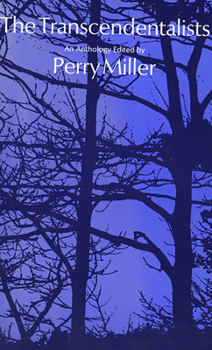The Transcendentalists: An Anthology
Select Format
Select Condition 
Book Overview
The late Perry Miller once stated, "I have been compelled to insist that the mind of man is the basic factor in human history," and his study of the mind in America has shaped the thought of three decades of scholars. The fifteen essays here collected--several of them previously unpublished--address themselves to the facets of the American consciousness and to their expression in literature from the time of the Cambridge Agreement to the Nobel Prize acceptance speeches of Hemingway and Faulkner. A companion volume to Errand into the Wilderness, its general theme is one adumbrated in Miller's two-volume masterpiece, The New England Mind--the thrust of civilization into the vast, empty continent and its effect upon Americans' concept of themselves as "nature's nation."
The essays first concentrate on Puritan covenant theology and its gradual adaptation to changing condition in America: the decline in zeal for a "Bible commonwealth," the growth of trade and industry, and the necessity for coexisting with large masses of unchurched people. As the book progresses, the emphasis shifts from religion to the philosophy of nature to the development of an original literature, although Miller is usually analyzing simultaneously all three aspects of the American quest for self-identity. In the final essays, he shows how the forces that molded the self-conscious articulateness of the early New Englanders still operate in the work of contemporary American writers.




